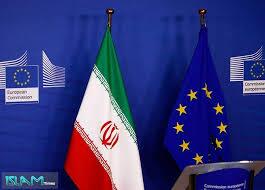
Iranian Foreign Ministry Spokesman Esmaeil Baghaei has dismissed the potential use of the snapback mechanism as a baseless and politically motivated move, warning that any such step will be met with an appropriate response.
Foreign Ministry Spokesman Baghaei said in a press briefing that the so-called snapback mechanism has no legal or political basis, and any threat to invoke it is purely a political maneuver aimed at confronting Iran.
“With recent developments in the past few weeks, resorting to such an unfounded mechanism—lacking legal, ethical, or political grounds—is more meaningless than ever,” he added.
He stressed that Iran still considers itself a party to the JCPOA, and its reduction in commitments was a legitimate response to the United States and other parties’ blatant violations of the deal. This was a right outlined in the JCPOA, he noted.
Baghaei also criticized the European parties for continually trying to exploit the snapback clause while failing to uphold their own obligations under the agreement. “They have no legal or moral standing to activate such a mechanism,” he concluded.
On Saturday, Iranian Foreign Minister Abbas Araghchi said that Iran's cooperation with the International Atomic Energy Agency has not stopped, stressing that Europe's insistence on triggering the snapback mechanism would end their role in Iran's atomic file, Mehr reported.
Meanwhile, he stressed that "There is no other way ahead but returning to diplomacy."
"There is no other way but to return to diplomacy and a negotiated and agreed solution, and the recent war proved this even more than before."
While the Zionist regime waged a war of aggression against Iran on June 13 and struck Iran’s military, nuclear, and residential areas for 12 days, the US stepped in and conducted military attacks on three nuclear sites in Iran’s Natanz, Fordow, and Isfahan on June 22.
The Iranian military forces conducted powerful counterattacks immediately after the aggression. The Islamic Revolution Guards Corps Aerospace Force carried out 22 waves of retaliatory missile strikes against the Zionist regime as part of Operation True Promise III, which inflicted heavy losses on cities across the occupied territories.
Also, in response to the US attacks, Iranian armed forces launched a wave of missiles at al-Udeid air base in Qatar, the largest American military base in West Asia.
A ceasefire that came into force on June 24 has brought the fighting to a halt.